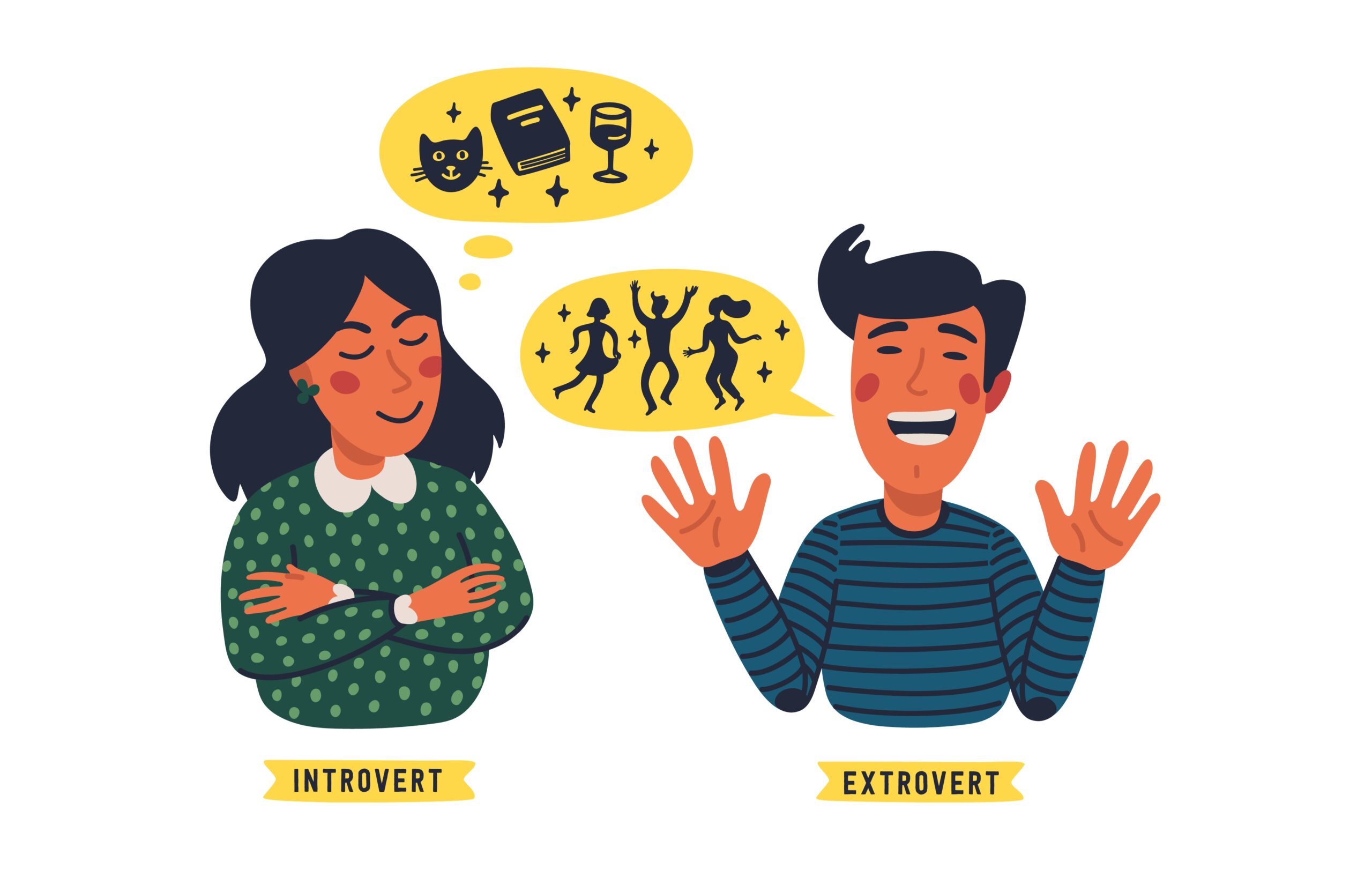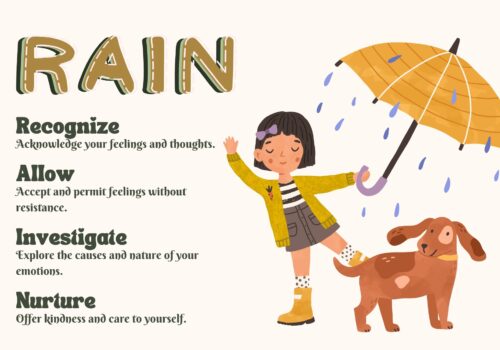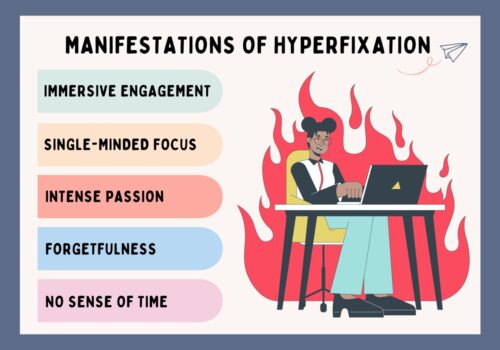Have you ever felt you do well with alone time, but then you aren’t opposed to a night out with friends? Well! It seems you exhibit the qualities of both an introvert and an extrovert and no, there is nothing wrong with it because you are an ambivert. You’ve got the best of both worlds, and it can pay off where your mental health and well-being are concerned, especially if your personality adapts positively according to a given situation.
Defining Ambiversion
Regarding personality traits, introversion and extroversion have long been fascinating and discussed. Both traits represent the opposite ends of a spectrum that defines how individuals interact with the world around them. Then you have an ambivert, posing as a third personality trait in the middle of this introvert-extrovert spectrum, providing fodder for psychologists to delve into the complex character of ambiversion. Psychologist Carl Jung believed that people who are neither highly introverted nor highly extroverted are in the majority, and experts have suggested that two thirds of all people are ambiverts.
Ambiverts have been called outgoing extroverts, antisocial extroverts, and even social introverts. They can switch between extroversion and introversion depending on mood and social circumstances. A flexible personality type, ambiverts transform into an extroverted mode when needed and turn back into an introverted mode to recharge with some time spent socializing. What’s impressive about ambiverts is their ability to engage in introverted and extroverted behaviors without feeling drained or overwhelmed by either extreme.
What is an Introvert?
An introvert is someone who prefers their own company and does not do well in social settings. Introverts are energized by “me time” and prefer doing everything, from vacations to working alone. Introverts are usually withdrawn and shy, although it might not always be accurate. An introvert might be inclined to open up in professional settings where work or family matters demand interaction. However, in their personal lives, they prefer less stimulating activities like reading, writing, or meditating.
Signs of an Introvert
- Few friends
- Thoughtful and introspective
- Enjoys being alone and in solitude
- Keeps emotions private
- Tends to keep emotions private
- Quiet and reserved in society except when among familiar people
- Drained by crowds
- Keen observers
What is an Extrovert?
An extrovert is a person who tends to be outgoing, friendly, and energized by interacting with others and their external environment. Extroverts are known for their expressive and open nature, readily sharing their thoughts and feelings with others. They are generally comfortable with being the center of attention and may have a wide circle of friends and acquaintances.

Signs of an Extrovert
- Enjoys social settings
- Loves attention
- Energized in the company of others
- Large friend circle
- Sociable and Outgoing
- Enjoys group work
- Prefers talking over writing
Characteristics of Ambiverts
Unlike introverts and extroverts, whose personality traits are defined by either side of the spectrum, ambiverts find their sweet spot in the middle. You are an ambivert if you possess the following characteristics.
Flexibility
Ambiverts are flexible and can easily transition between socializing and seeking solitude. They adapt their behaviour based on a situation and their personal needs. A flexible personality gives an ambivert the strength to navigate diverse social and professional environments more efficiently.
Empathy and Active Listening
A balanced nature is what makes ambiverts good at interpersonal relationships. They are good listeners and find it easy to connect with others on a deeper level. Ambiverts possess an empathetic nature that helps them understand and relate to various perspectives, making them excellent friends, partners, and colleagues.
Thoughtfulness
Ambiverts possess an introspective and reflective nature that helps them contemplate their thoughts and feelings. This leads to better decision-making and a balanced approach to life’s challenges. Thoughtfulness makes an ambivert successful in personal and professional endeavors.
Adaptability
Ambiverts adapt well to all situations, an ability that helps them switch gears easily between work and their personal lives. This makes them resourceful and practical problem-solvers who thrive in various careers and roles.
Signs that you are an Ambivert
If you are still determining whether you are an introvert, extrovert or ambivert, the following are signs you are one.
- You love socializing, but you also crave time alone
- You do well in solo and group projects
- You are okay with small talk but prefer meaningful conversations
- You like meeting new people, but only when you’re with someone you know
- You have several friends but only a small circle of close ones
- You like communicating but feel awkward speaking on the phone
- You relate to both introvert and extrovert traits
- Your friends cannot figure out if you’re an introvert or an extrovert
- You have more fun in a group of quiet people but tend to clam up in a noisy crowd
- You are mild-mannered
The Advantages of Being an Ambivert
There are several advantages to being an ambivert both in personal life and social settings. Some of these are:
- Versatility: Ambiverts excel in roles that require social interaction and introspection, making them well-rounded individuals. Their versatility helps them be more successful in their careers and personal goals.
- Resilience: Being resilient personalities, ambiverts can handle stress and adversity. They possess the strengths of both introversion and extroversion, making them resourceful enough to seek support and solace in solitude when necessary.
- Good Decision Makers: The balanced nature of ambiverts makes them good at decision-making. They weigh the pros and cons of a situation and consider internal and external factors, leading to better choices in both personal and professional lives.
- Good Communicators: Owing to their balanced personalities, ambiverts can connect with introverts who appreciate their active listening skills and extroverts who value their social engagement. This makes ambiverts efficient collaborators and diplomats.
Disadvantages of Ambiversion
- Ambiverts struggle to keep up with plans. Ambiverts can allow their extroverted selves to get enthusiastic by planning events for months, only to find that their introverted selves would prefer a week of quiet solitude.
- They can be mistaken for being extroverted. The extroverted traits of an ambivert might be mistaken for them being outgoing people. This makes others expect them to do extroverted things, making it difficult for an ambivert to oblige. Even though you can do something, that doesn’t mean you want to do it.
- They might have too much fun. An ambivert’s extroversion might make their social battery die. As an ambivert, while you’re busy enjoying yourself at a social event, you might suddenly begin to question your life choices and wish you spent more time at home alone.
Embracing The Balance of Ambiversion
Being an ambivert isn’t a bad thing. It is fascinating to identify with two different personality types. By embracing both, you can then utilize the strengths and learn to downplay the weaknesses. Understanding your ambivert nature is the first step to thriving as one, so take time out to reflect and recognize your needs in different situations. Knowing when you need social interaction and solitude is crucial for maintaining balance and well-being.
Moreover, it is always good to set boundaries in life to protect your energy levels. Establishing and communicating boundaries with your family and friends will help you maintain balance in your relationships. Most importantly, prioritize self-care to maintain your social and mental well-being. Celebrate your uniqueness as an ambivert and choose career options that relate to your nature with ample opportunities for personal growth.















